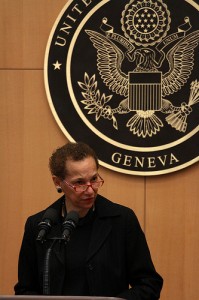The Global Challenges Forum Foundation
"We must work broadly, with the academic community, with civil society, with the private sector, and with the media, to come up with comprehensive and complex approaches to our most difficult challenges.”
– U.S. Ambassador to the UN and other International Organizations in Genava
THE GLOBAL PARTNERSHIP NETWORK: “EMPOWERING PEOPLE THROUGH PARTNERSHIPS TO PARTICIPATE IN GLOBAL CHANGE"
Globalization has brought new challenges that appear to be beyond the ability of our current institutions to address. In response there is a need to generate new educational opportunities on a global basis. This will allow the exploration of more partnership-oriented solutions to contemporary threats and risks. The Global Challenges Forum Foundation is working with others to create a Global Partnership Network as a “Forum of Forums” for governmental and non-governmental partners to have a common stake in establishing an entity that is:- Practical and pragmatic
- Characterized by openness and transparency
- Involving shared risk and work towards mutual benefits
- With trust and reciprocity as foundation for accountability
- Focused on developing a common framework for global education

Since 2017, The Global Challenges Forum Foundation has transitioned from a group of ad hoc forum structures bolstering other organization’s events to establishing three permanent and mutually supporting Forums of its own. These three Forums constitute the primary platform for the Global Partnership Network. It consists of:
- The Global Strategic Forum
- The Integrated Learning Forum
- The Sustainable Development Forum




 Sustainable Development Focus Topic
Energy Security
Sustainable Development Focus Topic
Energy Security